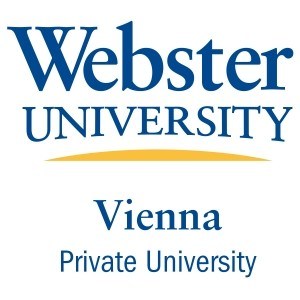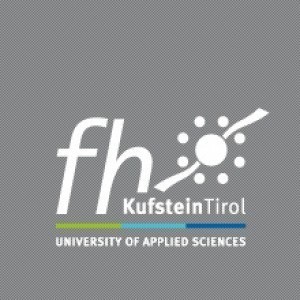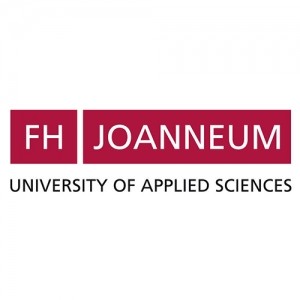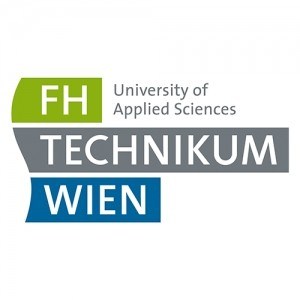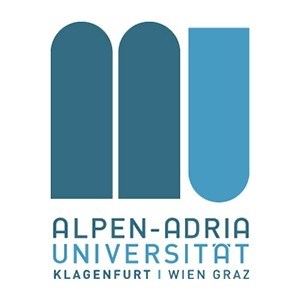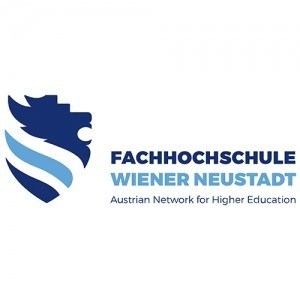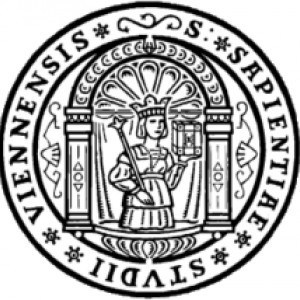Photos of university
The Bachelor of Arts in Media Communications at Webster Vienna Private University offers students a comprehensive and innovative curriculum designed to equip them with essential skills and knowledge to excel in the dynamic field of media and communication. This program emphasizes a blend of theoretical foundations and practical applications, ensuring graduates are well-prepared to navigate the rapidly evolving landscape of digital, print, broadcast, and new media platforms. Students will explore core areas such as media theory, journalistic practices, multimedia production, advertising, public relations, and digital communication strategies. The curriculum encourages critical thinking, creativity, ethical considerations, and effective communication skills, enabling students to craft compelling content and analyze media messages effectively.
Throughout their studies, students will have opportunities to undertake hands-on projects, internships, and collaborative assignments with industry partners, fostering real-world experience and professional development. The program also emphasizes the importance of understanding global media trends and exploring the cultural impacts of media on society. By engaging with contemporary issues such as social media influence, media regulation, and emerging technologies, students gain a broad perspective on the responsibilities and opportunities within the media sector. The diverse faculty comprises experienced professionals and scholars dedicated to mentoring students and supporting their academic and career ambitions. Upon graduation, students are prepared for careers in journalism, media production, advertising, public relations, digital marketing, and related fields, or for further studies in media and communication-related disciplines. The Webster Vienna BA in Media Communications combines a rigorous academic foundation with practical insights and international perspectives, making it an ideal choice for students eager to make an impact in the modern media environment.
Degree Requirements
A minimum of 128 credit hours consisting of the following:
48 Required credit hours in the major
30 GCP credit hours
50 Elective credit hours
Portfolio Review (non-credit)
EPMD 1000 Introduction to Media Production (3 hours)
MEDC 1010 Introduction to Mass Communications (3 hours)
MEDC 1050 Introduction to Media Writing (3 hours) or JOUR 1030 Fundamentals of Reporting (3 hours)
SPCM 1280 Interpersonal Communications (3 hours)
MEDC 1630 Media Literacy (3 hours)
MEDC 2200 Ethics in the Media (3 hours)
MEDC 2800 Cultural Diversity in the Media (3 hours) or MEDC 3260 International Communications (3 hours)
MEDC 3190 Introduction to Media Research (3 hours)
MEDC 4100 The Law and the Media (3 hours)
MEDC 4620 Senior Overview/Thesis* (6 hours)
MEDC 4950 Professional Media Practicum (Internship) ** (3 hours)
*Webster Vienna Private University students must select the thesis option.
**Students enrolled in an internship program must earn a grade of no less than B. The internship is optional but strongly recommended.
In addition, students will choose a 15-credit concentration in any one of the disciplines in the School of Communications (ADVT, ANIM, AUDI, FLST, FTVP, GAME, INTM, JOUR, MEDC, PBRL, PHOT, SCPT, SPCM, SPTC) or in courses that are required for majors in the School of Communications (such as BUSN 1200, INTL 2030, MNGT 3500, and MNGT 3510). At least 9 of those credits must be in a single area, and of those 9 credits 6 must be at the 3000 or 4000 Level.
The Bachelor of Arts in Media Communications at Webster Vienna Private University requires students to complete a total of 120 credit hours to graduate. The program is designed to equip students with comprehensive knowledge in media, communication theories, digital media, journalism, and related fields. Students must successfully complete foundational courses such as Introduction to Media Communications, Media in Society, and Media Ethics to build a solid theoretical background. Additionally, practical courses like Media Production, Digital Media Technology, and Journalism Techniques are included to develop hands-on skills. The curriculum emphasizes critical thinking, research proficiency, and effective communication, preparing students for various careers in media, public relations, advertising, and related industries.
Students are also encouraged to participate in internships and practical projects to gain real-world experience. The program includes elective courses allowing students to specialize in areas such as new media, advertising, or international communication. Language proficiency is essential; therefore, students must demonstrate adequate command of English, typically through standardized tests or institutional assessments. To graduate, students must also complete a capstone project or thesis that synthesizes their learning and demonstrates their ability to analyze and produce media content critically. The program emphasizes global perspectives, cultural awareness, and ethical considerations in media practices. Overall, the program aims to foster versatile media professionals capable of adapting to the rapidly evolving media landscape.
The Webster Vienna Private University offers a range of financing options to support students pursuing their Media Communications degree program. Prospective students can explore various financial aid opportunities, including merit-based scholarships, need-based grants, and tuition payment plans. Scholarships are awarded based on academic performance, entrance exam results, or other criteria and can significantly reduce the financial burden of higher education. Need-based grants are available to students who demonstrate financial need, assessed through a comprehensive evaluation process. Additionally, the university provides flexible payment plans that allow students to spread their tuition fees over manageable installments throughout the academic year, making the cost more accessible.
Students are also encouraged to seek external funding sources, such as government grants, private sponsorships, or international scholarship programs, which may be applicable to their individual circumstances. Webster Vienna maintains partnerships with various organizations and offers guidance on how to apply for external financial support. Furthermore, the university provides information on student loans available through Austrian financial institutions, although students are advised to consider the terms and repayment obligations carefully. International students should also explore visa and residency requirements related to financial proof, as part of their application process.
Webster Vienna promotes transparency and aims to ensure that financial concerns do not prevent qualified applicants from enrolling in the Media Communications program. The admissions office and financial aid department are available to assist students in understanding the full scope of available support and to help tailor financial solutions suited to their needs. Moreover, the university periodically reviews and updates its financial policies to adapt to economic changes and ensure ongoing affordability of its programs. Overall, Webster Vienna Private University strives to create an inclusive academic environment by providing comprehensive financing options to facilitate equitable access to education in the field of Media Communications.
Media Communications at Webster Vienna Private University offers students a comprehensive curriculum designed to develop critical understanding and practical skills in the fields of media, communication, and journalism. The program emphasizes the importance of media literacy, digital communication, and the role of media in society. Students explore a variety of topics including mass media systems, media ethics, communication theories, visual communication, and emerging digital platforms. The curriculum integrates both theoretical foundations and practical applications, ensuring graduates are well-prepared for careers in media production, public relations, advertising, journalism, and digital content creation.
Throughout the program, students have opportunities to engage in hands-on projects, internships, and collaborations with media organizations, which enhance their professional readiness. The program also highlights the importance of multicultural understanding, critical analysis, and ethical considerations in media practice. Courses are designed to develop competencies in written and oral communication, multimedia storytelling, and the utilization of current media technologies.
Complementing coursework, students participate in workshops, guest lectures from industry professionals, and networking events that foster industry connections. The faculty, comprising experienced educators and media practitioners, provides mentorship and guidance tailored to individual career goals. The program is structured to be flexible, catering to both full-time and part-time students, and often includes opportunities for study abroad and exchange programs to broaden global perspectives.
Webster Vienna’s dedicated resources include state-of-the-art media labs, computer facilities, and access to extensive media libraries, facilitating an engaging learning environment. Upon graduation, students are equipped with the critical skills and practical experience necessary to thrive in a rapidly evolving media landscape. They leave prepared for diverse roles in multimedia journalism, public relations, content management, social media strategy, and more, with a solid foundation in ethical, cultural, and analytical aspects of media communications.
